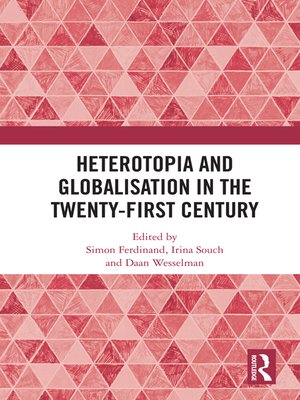
Sign up to save your library
With an OverDrive account, you can save your favorite libraries for at-a-glance information about availability. Find out more about OverDrive accounts.
Find this title in Libby, the library reading app by OverDrive.



Search for a digital library with this title
Title found at these libraries:
| Library Name | Distance |
|---|---|
| Loading... |
Can heterotopia help us make sense of globalisation? Against simplistic visions that the world is becoming one, Heterotopia and Globalisation in the Twenty-First Century shows how contemporary globalising processes are driven by heterotopian tension and complexities.
A heterotopia, in Michel Foucault's initial formulations, describes the spatial articulation of a discursive order, manifesting its own distinct logics and categories in ways that refract or disturb prevailing paradigms. While in the twenty-first century the concept of globalisation is frequently seen as a tumultuous undifferentiation of cultures and spaces, this volume breaks new ground by interrogating how heterotopia and globalisation in fact intersect in the cultural present. Bringing together contributors from disciplines including Geography, Literary Studies, Architecture, Sociology, Film Studies, and Philosophy, this volume sets out a new typology for heterotopian spaces in the globalising present. Together, the chapters argue that digital technologies, climate change, migration, and other globalising phenomena are giving rise to a heterotopian multiplicity of discursive spaces, which overlap and clash with one another in contemporary culture.
This volume will be of interest to scholars across disciplines who are engaged with questions of spatial difference, globalising processes, and the ways they are imagined and represented.







